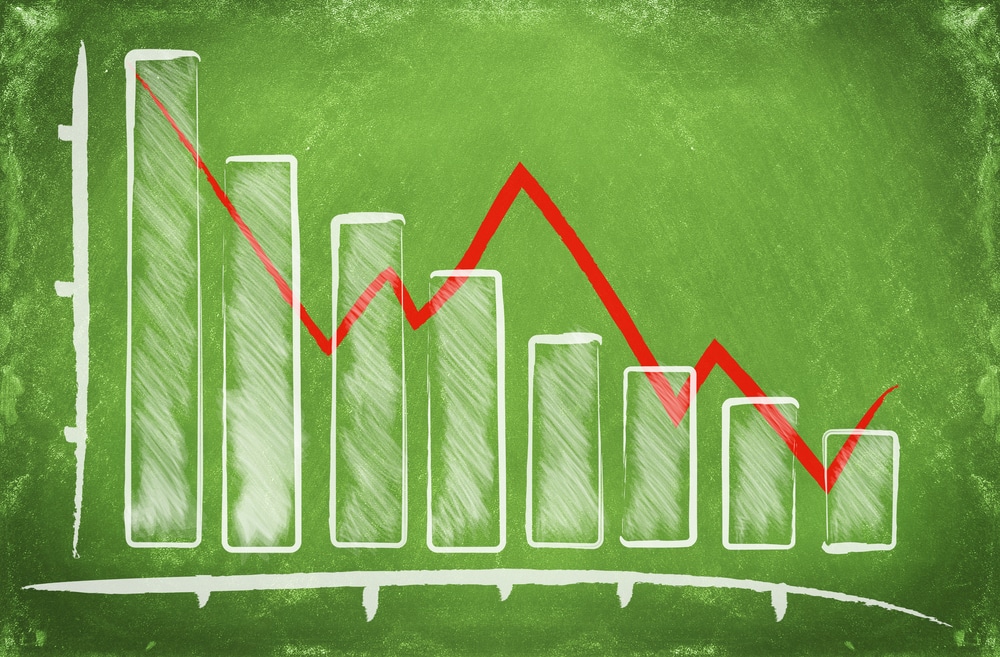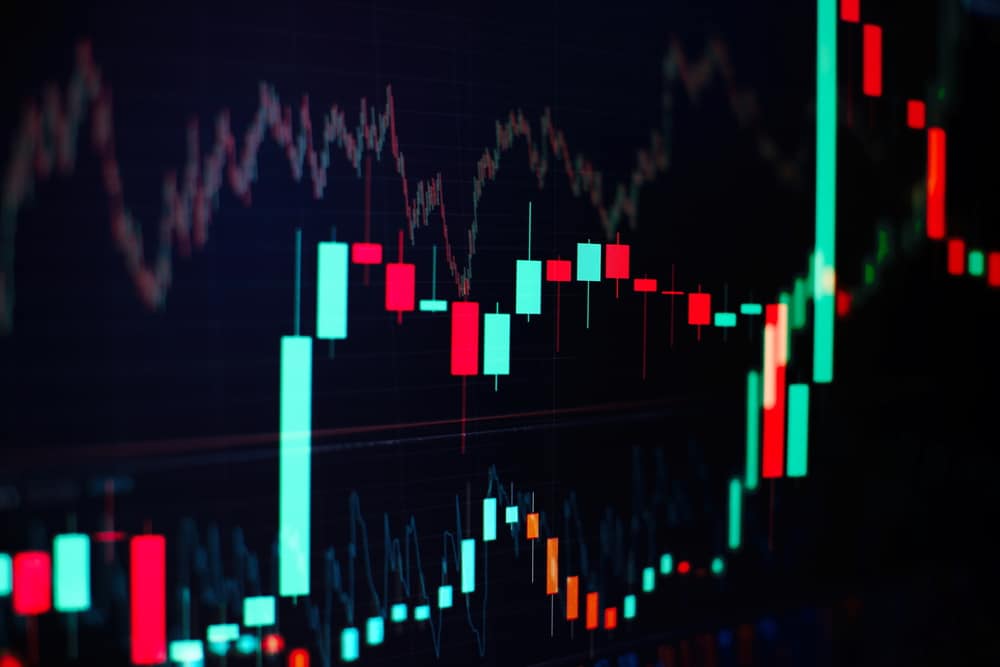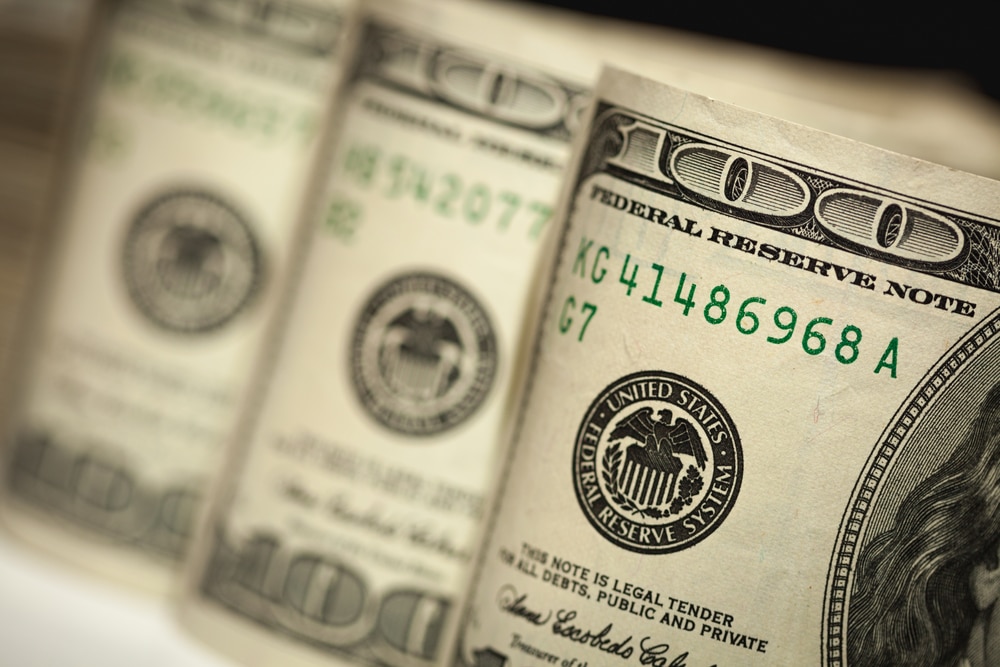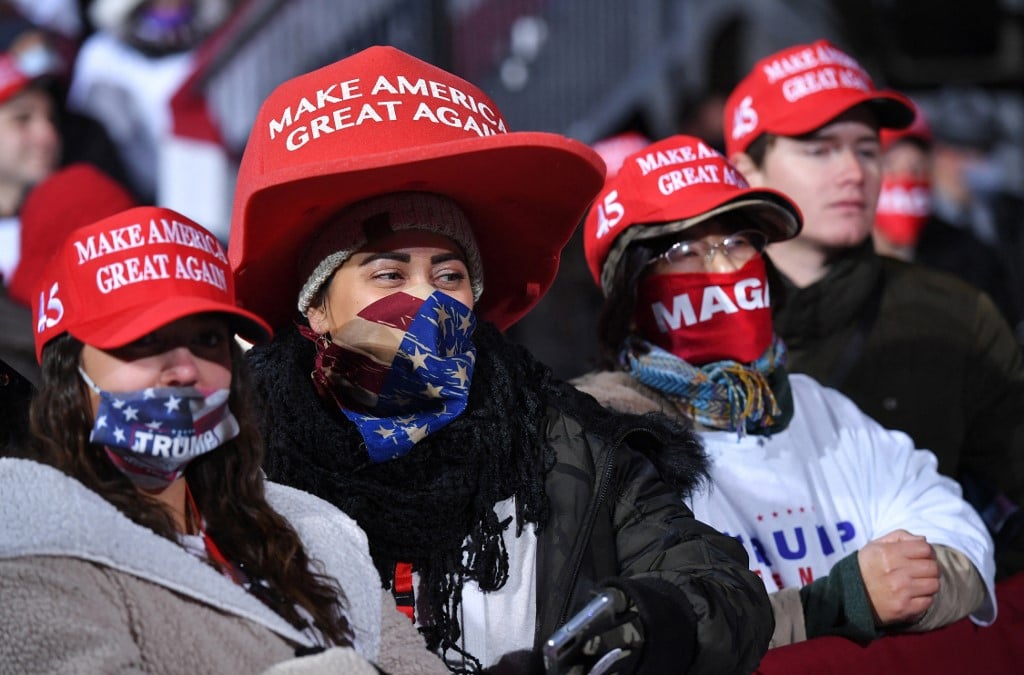In January, inflation slowed down again but still exceeded Wall Street’s forecasts, complicating the Federal Reserve’s journey towards interest rate reductions. This may allow the central bank to delay action until mid-year.
Inflation Eases, Uncertainty Lingers

The Labor Department’s Tuesday report showed a 3.1% year-on-year increase in consumer prices for January, down from December’s 3.4% rise – the lowest since last June.
Report Dashes Rate Cut Hopes

However, the consumer-price index surpassed the anticipated 2.9%, dampening investor hopes for an earlier rate cut by the Fed.
Investor Panic

This news shocked the markets, causing a steep drop in stocks and a rise in bond yields. The Dow Jones Industrial Average plunged over 500 points, or about 1.4%, marking its sharpest single-day fall since March.
Stock Indexes Suffer Post-CPI Blow

For the three major U.S. stock indexes, it was the poorest performance on a CPI release day since September 2022, as per Dow Jones Market Data.
Bond Yields Surge

The yield on the 10-year Treasury note climbed to 4.315%, reaching its highest point since late November.
False Comfort?

Tuesday was a wake-up call for many investors, reflecting on the ease of disinflation in 2023. Inflation dropped from 6.4% at the beginning of the year to 3.4% by December, without the expected increase in unemployment or a recession, a surprising and positive development.
A Bumpy Road Ahead

This led some to optimistically believe that returning to the Fed’s 2% inflation target would be straightforward. However, January’s report, representing just one month’s data, suggests a potentially bumpy road ahead.
Rate Cut Expectations

Prior to Tuesday, interest-rate futures indicated a likelihood of the Fed starting to cut rates by May. Now, a June commencement seems more probable.
The anticipation of imminent Fed cuts has been a major driver of the recent stock market rally, with the Dow achieving its 12th record high of 2024 on Monday.
Fed Skepticism

Tuesday’s inflation report highlighted the skepticism of Federal Reserve officials regarding the expectations of imminent rate cuts. Some officials have expressed concerns that the recent improvements may not fully reflect the actual progress in controlling inflation.
No Rate Cuts?

The Fed has indicated a reluctance to consider rate cuts at their upcoming March 19-20 meeting, emphasizing the need for more concrete evidence of inflation moving back towards their 2% target.
Awaiting More Positive Data

Jerome Powell, the Fed Chair, reiterated this stance, stating in a recent ’60 Minutes’ interview that “We want to see more good data. It’s not that the data aren’t good enough. It’s that there’s really six months of data.”
He added, “We just want to see more good data along those lines. It doesn’t need to be better than what we’ve seen, or even as good. It just needs to be good.”
Powell Reaffirms Rate Cut Belief

Powell expressed confidence in the future direction of monetary policy, stating, “And so, we do expect to see that.”
He emphasized this sentiment by highlighting the consensus within the Federal Open Market Committee, noting that “almost every single person on the Federal Open Market Committee believes that it will be appropriate for us to reduce interest rates this year.”
Core Prices Remain Steady

Core prices, which better represent the underlying inflation trend by excluding volatile food and energy costs, remained steady at 3.9% in January, matching December’s rate – the lowest since mid-2021.
Shelter Costs Drive Inflation

January saw higher-than-expected rises in overall and core prices, driven partly by shelter costs. The Labor Department’s measure, placing more emphasis on shelter, differs from the Fed’s preferred metric.
Goods vs. Services

Recent data shows goods prices declining, but service costs rising, contrary to Fed officials’ hopes for a broader slowdown.
High prices, particularly for frequently bought items like groceries, still continue to impact consumer confidence.
Inflation Expectation

Regularly purchased items heavily influence public inflation expectations, and while recent trends show improvement, the memory of past inflation rates continues to affect consumer behavior.
Consumer Psychology and Prices

A study by Ulrike Malmendier of the University of California, Berkeley, along with three co-authors, shows that the prices of items people buy frequently play a major role in setting their expectations of inflation.
Malmendier explains, “In terms of what gets ingrained in people’s brains, it’s stuff that they purchase frequently.”
Read Next: What Really Causes Donald Trump’s Skin to be So Orange

Former President Donald Trump’s distinctive orange skin has captivated attention, sparking curiosity about its evolution from average pale over the years:
What Really Causes Donald Trump’s Skin to be So Orange
21 of the Biggest Lies in American History

Dive into the shadows of American history as we explore 21 of its biggest lies that have left an indelible mark on the nation’s narrative:
21 of the Biggest Lies in American History
32 Things We Once Highly Respected but Are a Complete Joke Now

Discover the amusing downfall of once-respected entities in our changing world:
32 Things We Once Highly Respected but Are a Complete Joke Now
23 of Donald Trump’s Most Hilarious Moments as President

Explore the lighter side of Donald Trump’s presidency with 23 hilariously memorable moments that left the nation in stitches:
23 of Donald Trump’s Most Hilarious Moments as President
27 Things MAGA Movement Ruined Forever for People

How the MAGA movement left its mark on individuals and disrupted certain aspects of our everyday life forever:









